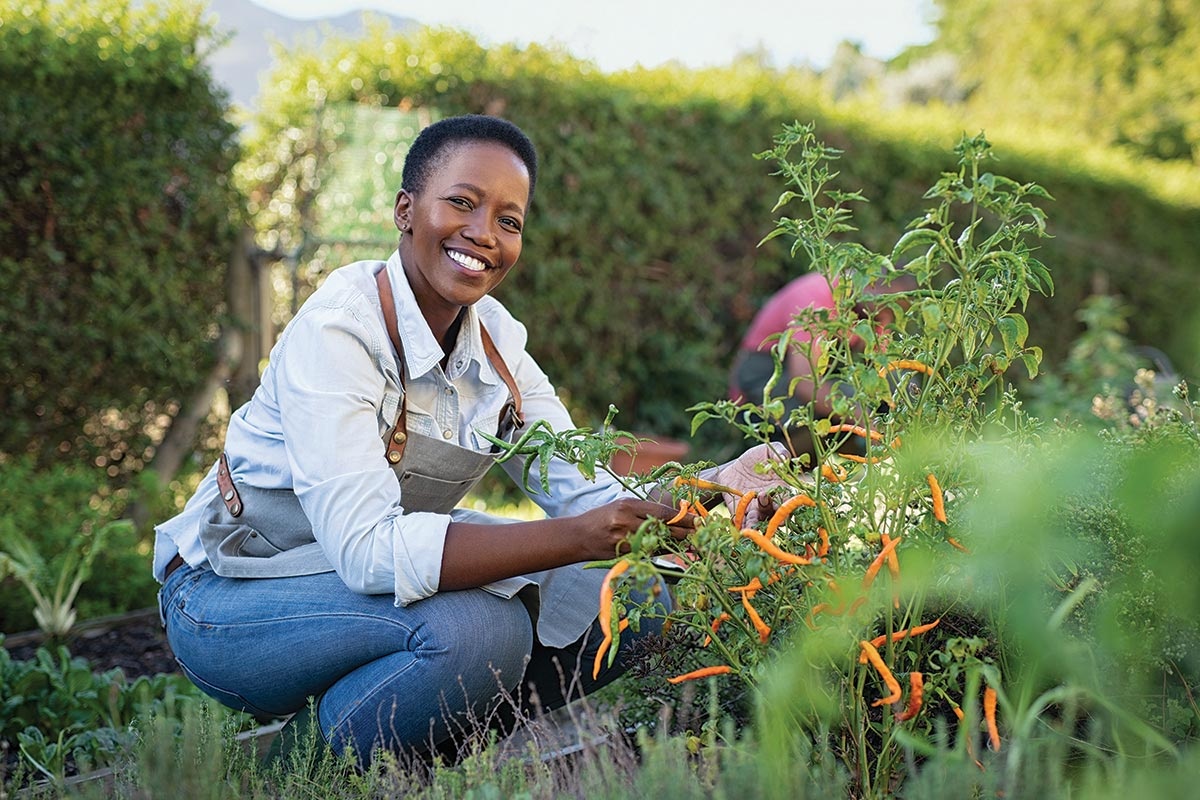An efficient garden can not only provide a relaxing place to unwind but also enhance the energy efficiency of your home. With a little planning and effort, your green space can efficiently use resources such as electricity, water and your physical energy.
Strategic Planting
Clever planting can create an aesthetically pleasing garden while providing organic structures that slow your home’s resource consumption.
Arrange plants by their water requirements. Thirsty plants do well in sheltered areas, where they will lose less water through transpiration. Planting in groups also reduces how much you have to move the hose.
Create a windbreak. Evergreens can provide shade as well as windbreaks, which help reduce drafts in homes and cut down on evaporation from gardens.
Use native plants. Plants that grow naturally in your region provide a low-maintenance option for gardens. After all, they adapted naturally to your area.
Plant shade trees. Shading your house and especially its roof with trees can reduce indoor temperatures and the need for air conditioning. The shade will help your outdoor space feel cooler, too.
Smart Watering
Having a garden that uses water efficiently doesn’t mean you’re confined to xeriscaping or hardscapes. Instead, use these tactics to make sure your water doesn’t go to waste.
Use a trigger. If watering your garden with a hose, use a nozzle that has a trigger that allows you to turn the spray on and off to avoid spraying the ground between plants.
Time watering. Water early in the morning or in the evening to allow plants time to absorb the water. Watering in the heat leads to evaporation and waste.
Amend the soil. Healthy soil retains water better, so adding materials such as compost and organic matter like wood chips can help the ground stay moist.
Remove part of your lawn. As beautiful as it might be, that green part of your yard consumes a lot of resources. Removing it conserves water and frees up space for alternatives.
Let it drip. A drip system slowly emits water and keeps it close to the ground. Drip tape reduces evaporation and runoff.
Energy Conservation
Even outdoor spaces can consume resources such as electricity or fuel, but a couple of changes can keep utility costs down.
Use solar lights. These can be easily installed to illuminate gardens at night without having to rely on the electric grid.
Consider an electric mower. If you have a small lawn, an electric mower can be more efficient than a gas-powered mower, depending on the price of fuel.
Self-Care
Remember to conserve your personal energy when gardening, which can be physically strenuous.
Keep it close. Plant your garden close to the house and a water source to limit how far you have to haul a hose or watering can.
Scale smart. Keep your garden to a manageable size so you don’t feel overwhelmed or overworked.
Lift light loads. If you must move heavy bags of mulch or soil, consider dividing the material into smaller, more manageable loads by using a wheelbarrow or garden cart.
Sit while you work. A kneeler seat or rolling garden chair can help you work near the ground.
Vary tasks. Avoid doing the same task so many times that it overstresses one part of your body.
Use ergonomic tools. Select garden tools that fit your hand and that have curves and padding. Wear gloves to protect against blisters and scrapes.
Take breaks. Gardening should be enjoyable, so take breaks to rest, and enjoy taking in the beauty of your garden.


